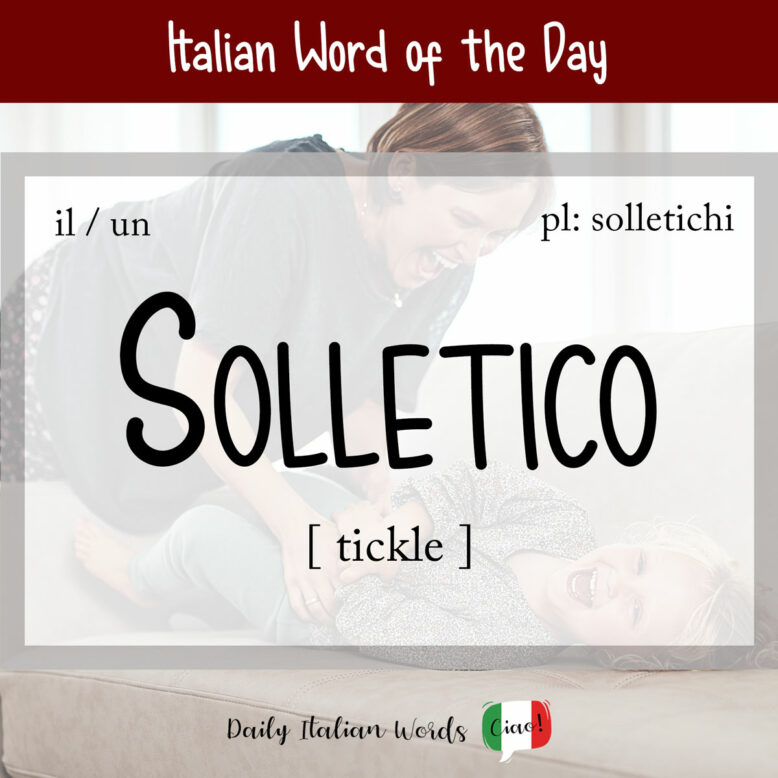The Italian word for tickle is solletico (masculine, plural: solletichi).

It normally appears in the expressions fare il solletico (to tickle, or literally, “to do the tickle”) and soffrire il solletico (to be ticklish, or literally, “to suffer from the tickle”). A synonym for fare il solletico is the verb solleticare.
If you are going to tickle someone, the best places to target include:
- sotto le ascelle = under the armpits
- sul collo = on the neck
- sotto i piedi = on the feet
- sulla pancia = on the tummy
- sui fianchi = on the sides
Smettila di farmi il solletico!
Stop tickling me!

The idiomatic expression non fare nemmeno il solletico (lit. to not even tickle) is one way of saying that something has very little or no effect whatsoever on you.
Ma hai visto quanto è grosso? Un pugno dei tuoi non gli farebbe nemmeno il solletico!
Did you see how big he is? If you punched him, it would have no effect on him!
Figuratively speaking, solletico can refer to an incitement, thrill or whim. For example, il solletico della curiosità literally means the thrill of curiosity. Non sentire il solletico di qualcosa means to not feel the desire for something.
Heather Broster is a graduate with honours in linguistics from the University of Western Ontario. She is an aspiring polyglot, proficient in English and Italian, as well as Japanese, Welsh, and French to varying degrees of fluency. Originally from Toronto, Heather has resided in various countries, notably Italy for a period of six years. Her primary focus lies in the fields of language acquisition, education, and bilingual instruction.


